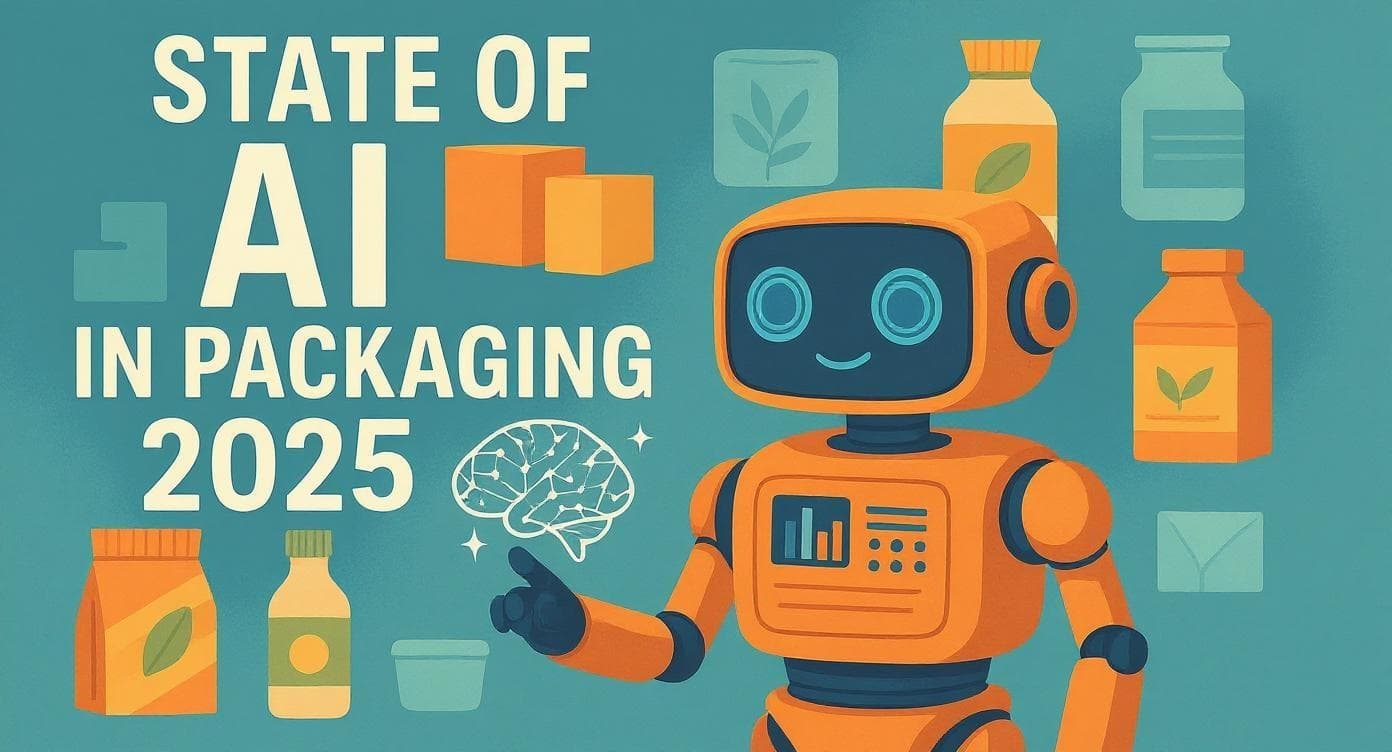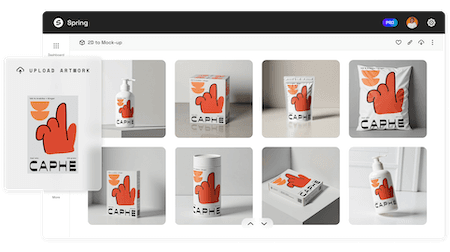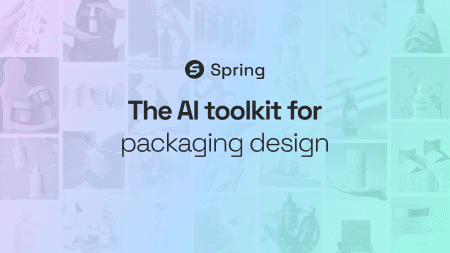Blog PostEverything you need to know about the Plastic Packaging Tax
- Sustainability
- Innovation
Albert HowardDecember 8, 2021 - 6 min read
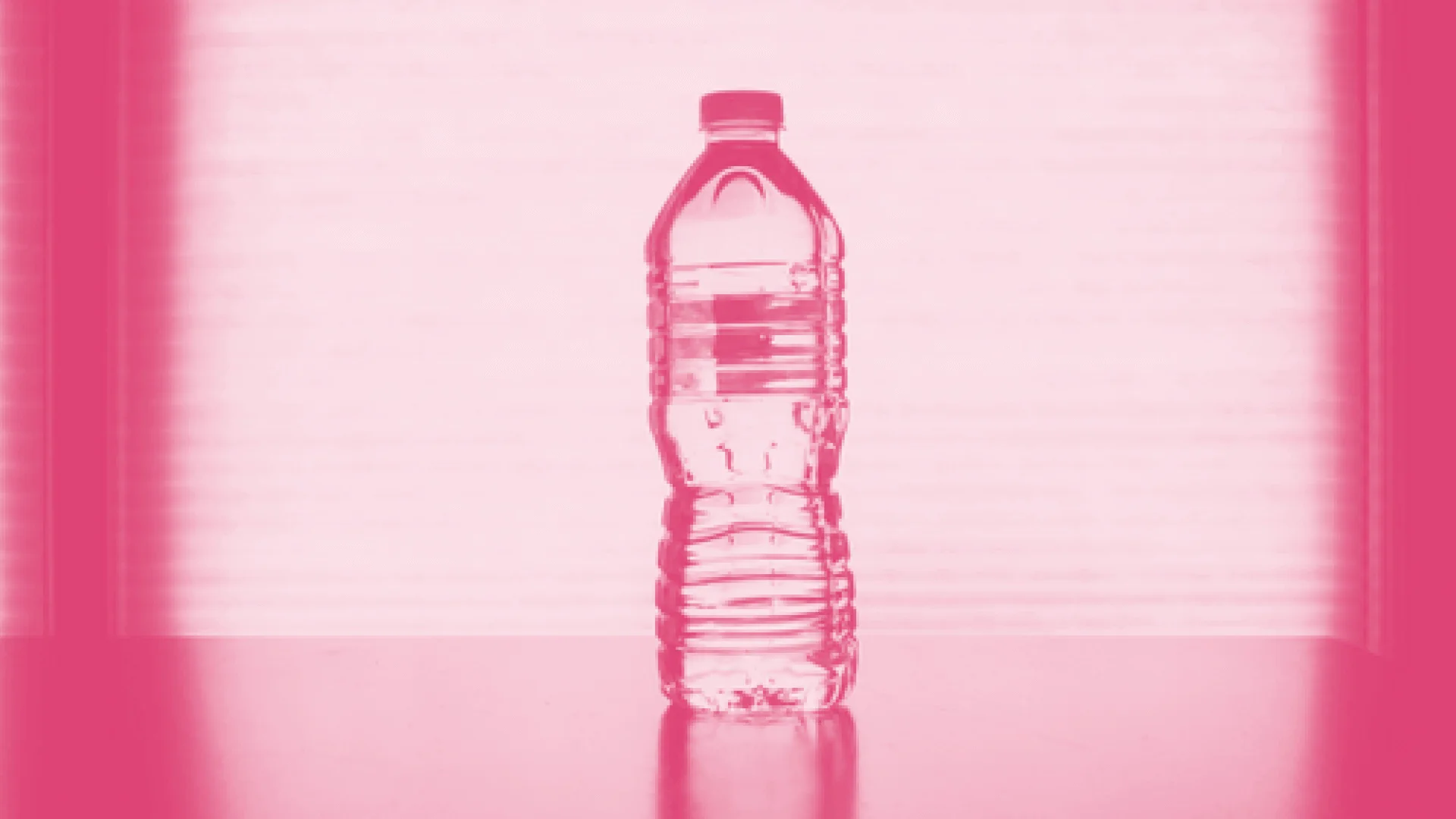
On 1 April 2022, the UK Government introduced the Plastic Packaging Tax (PPT). As the name suggests, PPT is a new tax on plastic packaging. More specifically though, it's a tax on plastic packaging manufactured in or imported into the UK that contains less than 30% recycled plastic. That's the main statement from the UK Government, but here's a more complete overview of the tax:
- The rate of tax is £200 per metric tonne of plastic packaging.
- Plastic packaging is defined as packaging that is mostly plastic by weight.
- The Plastic Packaging Tax only applies to finished products. By “finished", the Government mean packaging that's undergone its last major modification. This includes modifications to shape, structure, thickness and weight.
- PPT only applies to businesses that manufacture or import 10 tonnes or more of plastic packaging per year. That said, if your business doesn't fall into that category, the tax may still affect you.
- The Plastic Packaging Tax applies to both petroleum-based plastics and bio-plastics, which includes compostable packaging.
- The Plastic Packaging Tax covers packaging used for the “containment, protection, handling, delivery or presentation of goods at any stage in the supply chain of the goods". This means PPT applies to packaging such as yoghurt pots, plastic crates, ready meal trays and even coat hangers.
- PPT also applies to packaging that already contains goods, such as drink bottles.
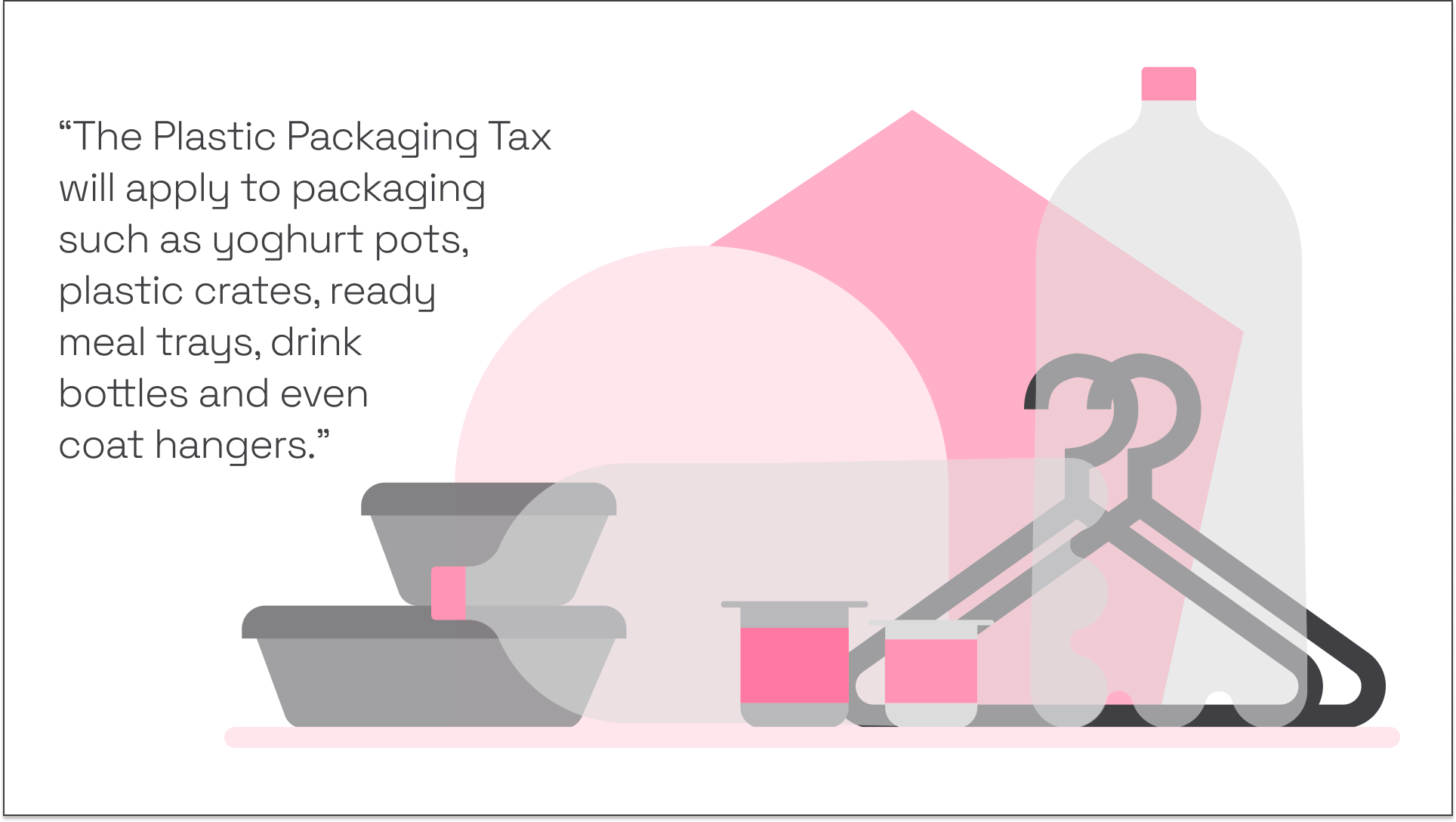
UK Plastic Tax
Why has the UK Government introduced the Plastic Packaging Tax?
PPT aims to drive more demand for more sustainable materials. Since April 1, there's been a new financial incentive for businesses to use more recycled plastic. In turn, the government estimates that demand for recycled plastic will increase by up to 40%. This could save 200,000 tonnes of carbon dioxide being released between 2022 and 2023. The Plastic Packaging Tax will also lead to more packaging being recycled and less going to landfill. And it may help drive recycling innovation in the UK.
Which businesses does the Plastic Packaging Tax affect?
There are three main groups of businesses that are affected:
-
Businesses that manufacture or import 10 tonnes or more of plastic packaging per year. If this is your business, you will have to register for the tax.
This doesn't mean for certain you'll have to pay, but any business that falls into this category has to register. If your packaging then contains less than 30% recycled content and doesn't meet any of the exemptions below, you will have to pay PPT. It's these businesses that are the most affected by the Plastic Packaging Tax.
Packaging exempt from the Plastic Packaging Tax:
- Plastic packaging used as transport packaging on imported goods such as shrink wrap.
- Plastic packaging used in aircraft, ship and train stores. This type of packaging is seen as being in transit. If this packaging is then imported, it's liable for PPT.
- Plastic packaging used in the immediate packaging of a medical product. “Immediate packaging" means any packaging in contact with the product.
- Plastic packaging that will be permanently used for a purpose other than packaging. Packaging that fits this description isn't common but includes items like the film used to coat whiteboards.
Next step: register for the Plastic Packaging Tax
-
Businesses that import or manufacture less than 10 tonnes of plastic packaging. If you do, you may be exempt from the tax itself but you do need to keep records of your packaging. This includes records to show:
- The total weight of packaging imported or manufactured.
- The calculations you've used to determine if your packaging is plastic packaging.
- The weight of packaging that's exempt and the reason why it's exempt.
- The weight of any plastic packaging you export, which can contribute to relief from PPT.
If this seems like a lot, it is, but these records ensure businesses comply with the new tax. As the Government says, “plastic packaging is assumed to not meet the recycled content test unless it can be shown it does".
Next step: start to keep the right records.
-
Customers of those importers and manufacturers affected. As costs increase for these businesses because of the Plastic Packaging Tax, they will likely pass on some or all of that cost to customers. This means PPT can affect businesses in any industry, including food and beverage, fashion and electronics. If you buy plastic packaging, this is the key takeaway: you're likely to see an increase in prices.
At the same time, this makes PPT a good opportunity to consider alternative packaging. Paper-based solutions such as mailer boxes, for example, won't be affected by the tax. These more sustainable types of packaging offer a way to avoid the knock-on costs of PPT.
Next Step: consider alternative packaging if possible.
What about Sourceful
As an importer of packaging made from recycled plastics, bioplastics and some virgin plastics, we've registered for the Plastic Packaging Tax. We're also keeping track of any changes to the tax which we'll update this article with periodically. Whilst PPT is affecting businesses throughout the supply chain, laws that encourage more sustainable materials are a positive step.
If you're still unsure whether you need to register for the Plastic Packaging Tax, HMRC has published a helpful guide here.
Have more questions about the Plastic Packaging Tax? Contact us



